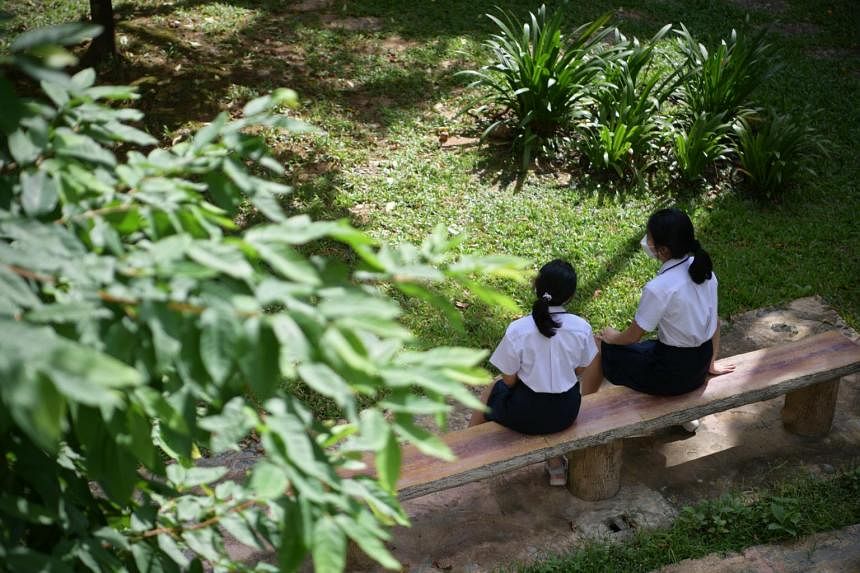SINGAPORE - About one in three youth in Singapore has reported internalising mental health symptoms such as sadness, anxiety and loneliness, a national study has found.
Those aged 14 to 16 had more serious symptoms.
These were among preliminary findings from a survey that is part of the Singapore Youth Epidemiology and Resilience Study involving 3,336 young people aged 11 to 18 here.
The study by the National University of Singapore, in collaboration with the Education Ministry and the Institute of Mental Health, is the first national study to estimate the prevalence of mental health conditions of youth, as well as gauge their emotional resilience.
Meanwhile, roughly one in six young people said they experienced externalising mental health symptoms, such as hyperactivity, rule-breaking, aggression, said Associate Professor John Wong, who is the principal investigator of the study.
He was speaking at a panel on the state of youth mental health in Singapore at the Temasek Shophouse Conversations on Friday (May 20).
Other panellists were from the Institute of Mental Health, the Health Ministry's Office for Healthcare Transformation and Duke-NUS Medical School.
Prof Wong noted that youth aged between 14 and 16 also scored lower in resilience, compared with other age groups, which suggests that more attention should be given to address their mental health needs.
The study also found that a positive self image and building relationships were important protective factors, among others, against self harm and suicidal thoughts for young people in Singapore.
"This suggests that the future mental health workforce should take on a multidisciplinary approach to include not just psychologists and psychiatrists, but also mental health social work specialists," Prof Wong told The Straits Times.
Since the study was launched in April 2019, the research team had reached out to 16,000 students to get a representative sample across gender, ethnicity and socio-economic status.
More details about its findings will be shared in July, said Prof Wong.


